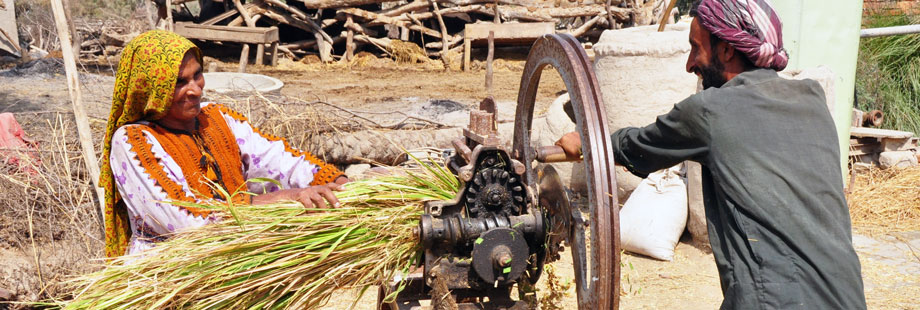Gender
Gender equality and women’s empowerment are crucial to end hunger, malnutrition and poverty. Women constitute 48 percent of the agricultural labour force in low-income countries and are critical agents of change and resilience builders. As farmers, agricultural workers, food processors, traders, entrepreneurs and community leaders, women play a central role in rural economies, natural resource management and food production – they make significant contributions to food security, nutrition and the well-being of families and communities.
Empowering women and achieving gender equality.
Compared to men, women experience greater constraints in accessing resources, services, institutions, markets, decent employment and other economic opportunities. The “gender gap” in agriculture is still substantial and prevents women from reaching their full potential and undermines agricultural production and rural development.
FAO works with member states and partners to design and implement gender-equitable laws and policies and gender-transformative programmes. Priority actions include, among others: increasing women’s access to and control over productive resources; developing gender-sensitive value chains; investing in labour-saving technologies; and addressing gender issues in climate change adaptation and resilience building.
Key policy messages
- Gender equality is essential for attaining food security and nutrition, and for ensuring that everyone has stable access to enough high-quality food to lead an active and healthy life.
- Women are critical agents of change and resilience builders in the fight against rural poverty, hunger and malnutrition. If they have the same access as men to productive resources and services, women could increase yields on their farms significantly, which in turn, would highly reduce the number of hungry people in the world.
- The 3 Cs (Covid-19, conflicts and climate crises) have increased poverty, food insecurity and gender-based violence.
- To close the gender gap in agriculture, policy interventions must address the root causes of gender inequalities and reverse the underlying discriminatory norms and practices. Zero hunger cannot be achieved until there is gender equality - equal access to resources, services, markets and decent employment for all men and women.
- Women’s empowerment and the closing of the gender gap in agriculture and food systems are essential to eradicating hunger, malnutrition and poverty, and reaching the Sustainable Development Goal 2 target of Zero Hunger by 2030.
- Engaging with women and youth becomes a critical avenue for designing and implementing effective and gender-responsive policies and investments for sustainable agriculture development and agri-food systems.
Featured resources


Issue paper
Supporting an enabling legal environment for women’s empowerment in food and agriculture

Issue paper
Gender-responsive digitalization. A critical component of the COVID-19 response in Africa






Brochure
Leaving no one behind. Empowering Africa’s Rural Women for Zero Hunger and Shared Prosperity


